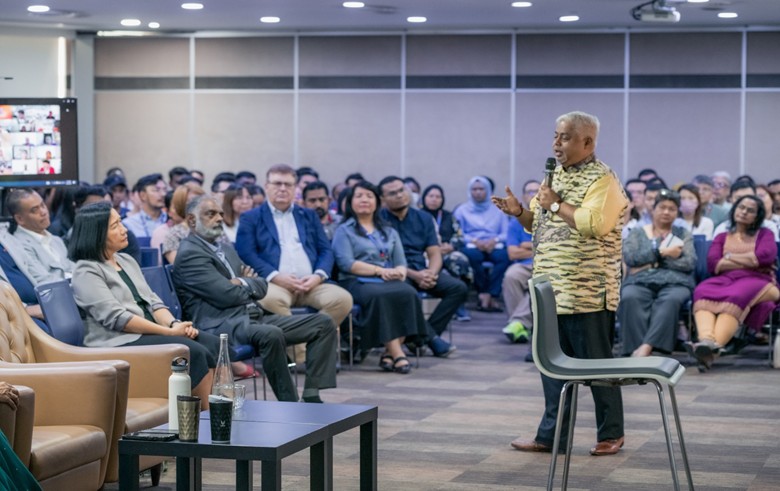Corporate recruitment processes reflect organizational values and operational standards. QI Group, the Hong Kong-registered multinational conglomerate founded in 1998, has developed comprehensive hiring practices that align with its philosophy of empowering individuals across diverse business sectors. With operations spanning more than 30 countries and a workforce exceeding 2,000 individuals from nearly 50 nationalities, the company has established recruitment frameworks designed to identify talent capable of contributing to its global mission.
How to Join QI Group of Companies?
To join QI Group of companies, candidates can explore opportunities by sending their resumes through the company’s website. The organization seeks professionals who align with its four core values: integrity, service, sustainability, and leadership. According to company materials, “Novel, inventive, and innovative ideas make us smile. Effective and efficient work performance makes us excited. Extraordinary results make us dance. Meaningful friendships and generous relationships make us stay!”
Talent development forms a central component of the company’s business approach. The company’s website states, “Be part of a culture where employees go beyond discussing the company values and actually LIVE them. We believe that companies don’t succeed, but people do. That’s why we invest in our people!”
The company operates the iLead Women’s Mentoring programme, which pairs experienced female executives with women managers to guide career advancement within the organization. This initiative reflects the company’s commitment to developing female leadership across its operations. According to its 2024 Diversity Report, QI Group’s women comprise 47% of employees.
The workforce spans multiple generations, with 63% of employees classified as millennials and Generation Z members. This demographic composition supports the company’s approach to career development programs that address varied professional expectations and learning preferences across age groups.
Professional development extends through multiple structured programs designed for different career stages and leadership levels. The Zone, a four-day invitation-only program led by founder Vijay Eswaran, focuses on self-assessment and purpose identification for selected employees, board members, and business partners. STEER, moderated by co-founder Joseph Bismark, provides three-day intensive training covering service delivery, teamwork dynamics, personal enrichment, excellence standards, and professional resolve.
QI Rising functions as a leadership development initiative fully funded by the company, targeting employees identified for advancement potential. The program emphasizes self-awareness, team building, and ownership mentality development. Second Echelon (2E) is an exclusive mentoring track facilitated by the founders themselves, designed to cultivate the next tier of organizational leadership.
Who is the Owner of QI Group?
Founders Vijay Eswaran and Joseph Bismark established QI Group in 1998 and continue to lead the privately held company as executive chairman and deputy chairman, respectively. Their board of directors assists in guiding organizational direction and decision-making.
Eswaran, born in Malaysia, pursued higher education in socioeconomics and business administration at institutions in Britain and America. His professional journey included restructuring a Malaysian publishing firm that faced financial difficulties. After two years of successful turnaround efforts, the company’s sale to new owners resulted in the elimination of his position. This experience prompted Eswaran to establish his own business ventures, drawing on international corporate experience and knowledge of network marketing models encountered during his time abroad.
Bismark’s unconventional background includes early education in an ashram setting and achievement in martial arts, including a 3rd Dan black belt in taekwondo and participation on the Philippine national team. His four-decade commitment to yoga and vegetarian lifestyle choices has shaped the company’s ventures in organic food retail and wellness sectors.
“Leadership is often misunderstood. People think that it’s simply a form of recognition, a title. But this couldn’t be further from the truth,” Bismark explained.
Employee Development and Career Advancement
QI Group implements professional development through structured programs including STEER (Service, Teamwork, Enrichment, Excellence, and Resolve) and QI Rising. These initiatives provide frameworks for skill building and career progression across departments.
The company’s commitment to internal advancement appears in employee transitions across roles. Nazmin Abdullah moved from building surveying to a senior operations position within the RYTHM Foundation, the company’s social impact division. Her work includes community engagement projects with indigenous populations.
“When I saw the excitement on their faces and sensed the relief in the community that their children had a shot at a different future, it was truly heartening. It solidified my belief in the power of collective action to create lasting change,” Abdullah stated.
Mohd Yazzid Hashim experienced similar professional growth, transitioning from a reserved technical contributor to senior web and multimedia designer. “I was the guy who would rather let his work do the talking,” he reflected. Global team collaboration expanded his professional scope: “Working with a global team has broadened my perspective. Now, I’m designing digital experiences that speak to millions. It’s been quite a ride.”




